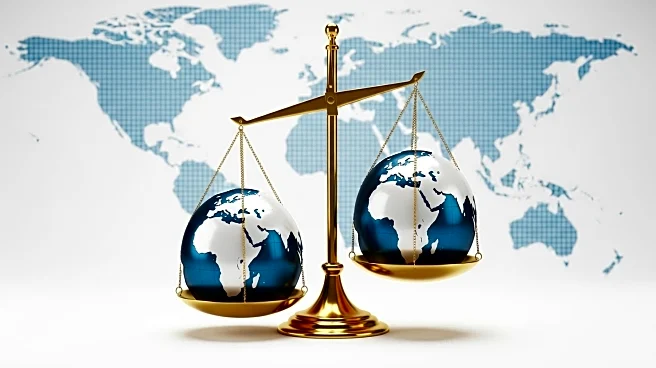What's Happening?
President Trump has introduced a significant increase in the H-1B visa application fee, raising it to $100,000. This move is part of an effort to protect American jobs by making it more costly for companies to hire skilled foreign workers. The fee hike has prompted reactions from various global talent hubs, which see this as an opportunity to attract skilled workers who might otherwise have gone to the U.S. The policy has sparked criticism from countries like India, which argue that it could have humanitarian consequences. The H-1B visa has been a crucial tool for U.S. companies, especially in the tech sector, to recruit talent from countries such as India and China.
Why It's Important?
The increase in the H-1B visa fee could have significant implications for the U.S. economy, particularly in sectors that rely heavily on skilled foreign labor, such as technology and finance. By making it more expensive to hire foreign talent, U.S. companies may face challenges in filling specialized roles, potentially impacting innovation and competitiveness. Conversely, other countries may benefit as they position themselves as attractive alternatives for skilled workers. This shift could lead to a redistribution of global talent, affecting the U.S.'s position as a leading destination for skilled immigrants.
What's Next?
As the new fee takes effect, companies and countries will likely adjust their strategies to either absorb the cost or seek talent elsewhere. U.S. businesses may increase lobbying efforts to influence immigration policy, while other nations may enhance their immigration incentives to attract skilled workers. The long-term impact on the U.S. labor market and global talent distribution will depend on how these stakeholders respond to the policy change.









